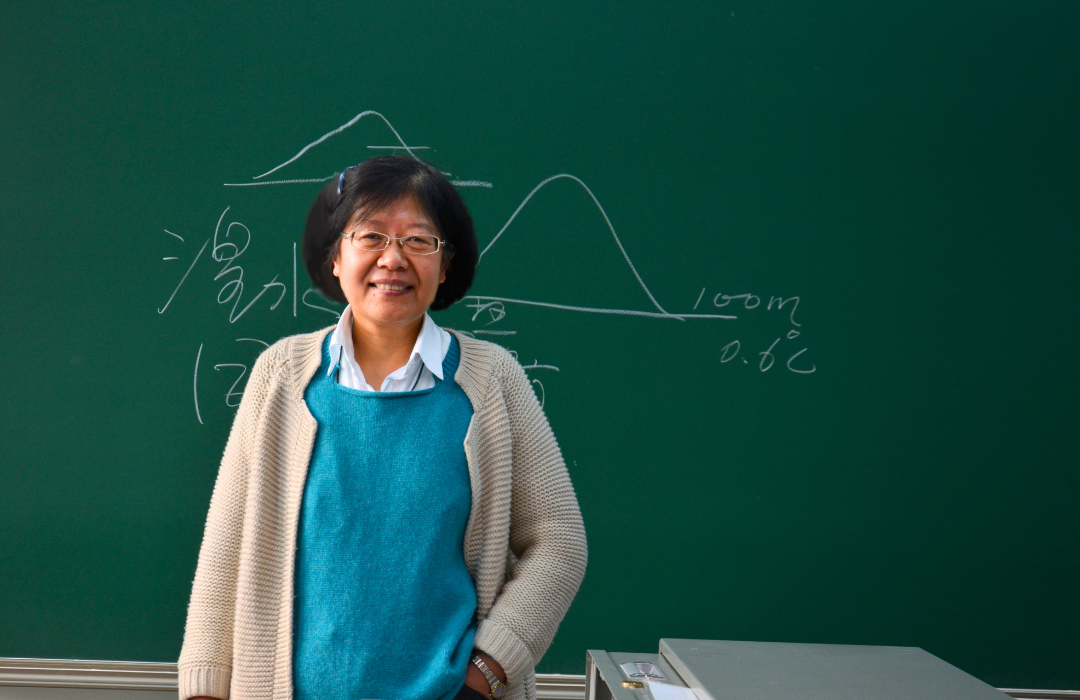
From a “niche” discipline to a packed lecture hall, Professor Han Maoli’s 29-year teaching journey has inspired over 10,000 students—and made history come alive.
Peking University, June 13, 2025: Every Monday evening during the spring semester of 2025, this raked lecture hall, which seats 425, remains packed with eager students.
The class concludes, as always, with three consecutive “thank you”—a signature farewell from Professor Han Maoli, who has dedicated 29 years to teaching Chinese Historical Geography at Peking University.
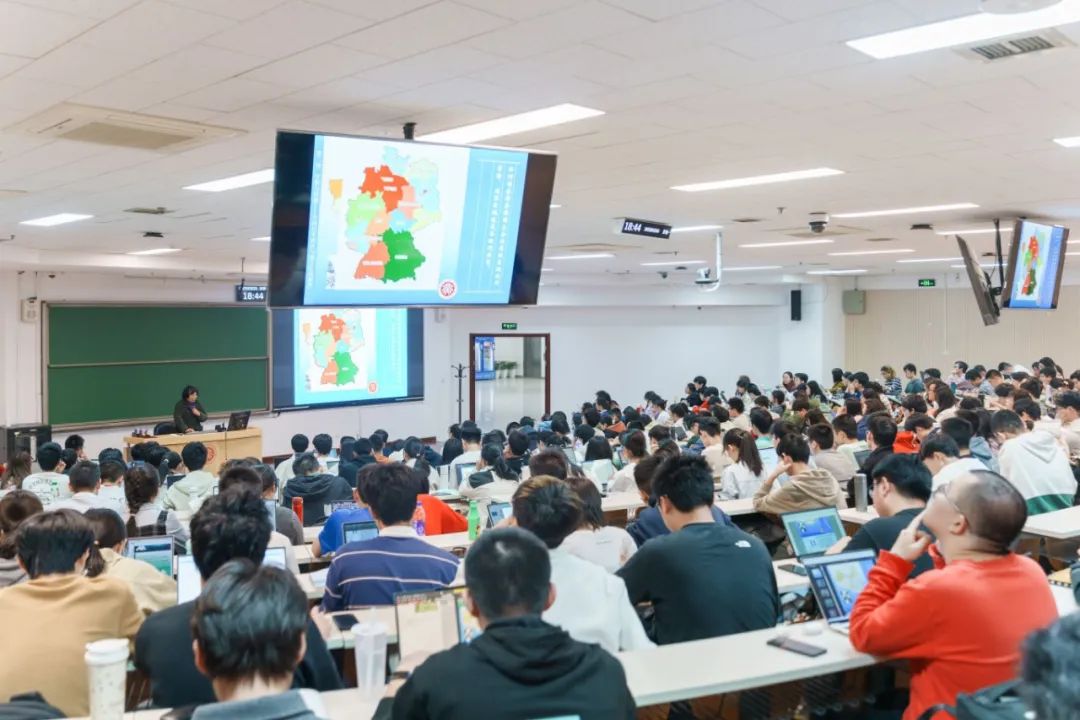
A 2025 spring semester class of Han Maoli’s Historical Geography
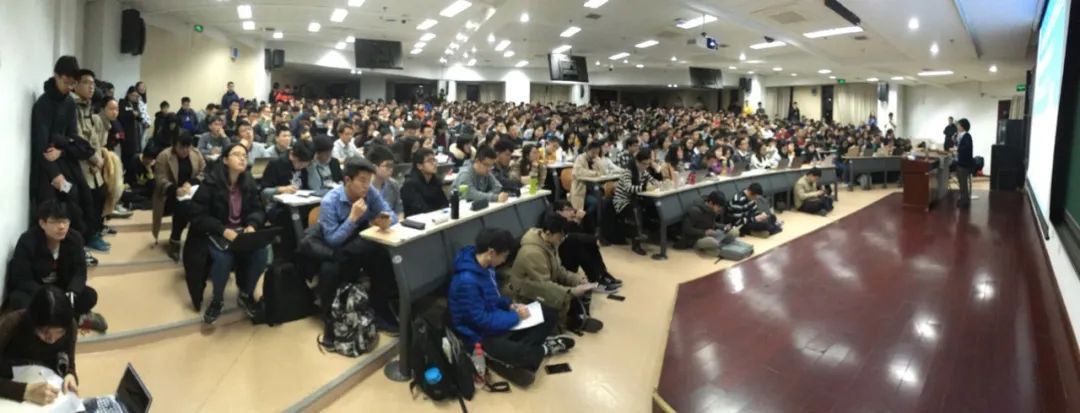
A 2018 spring semester class of Han Maoli’s Historical Geography
Rewind to 1996
In the autumn of 1996, a young instructor named Han Maoli had a bold idea: She wanted to turn her little-known academic specialty into a general education course open to the entire university.
At the time, the subject was niche, rarely taught outside its discipline. Even as a graduate student, she had found the textbooks on the subject hard to digest. Han faced a challenge: “How do I teach this in a way that students won’t hate?”
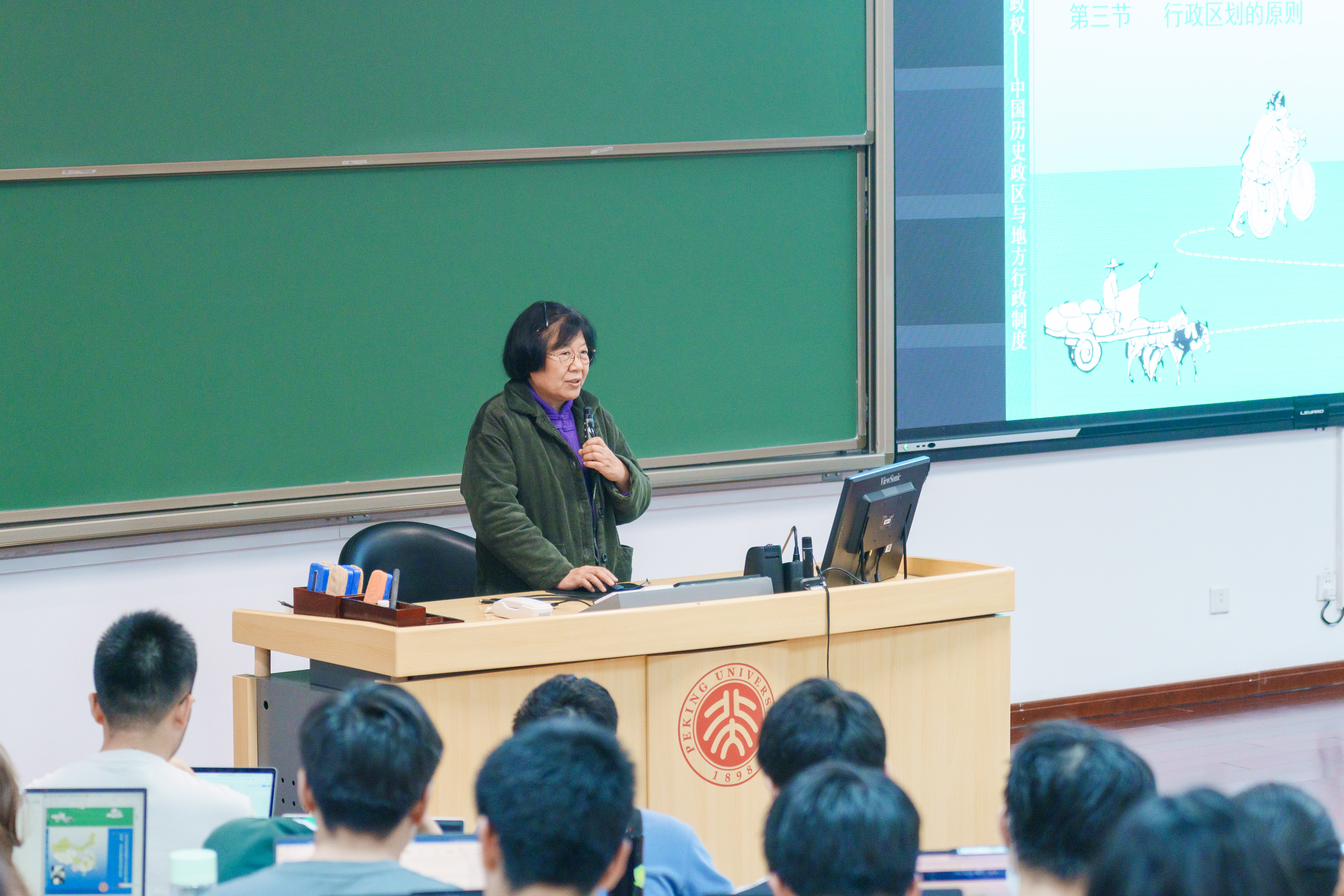
Though her own research focused on ancient Chinese agriculture, Han realized that talking about farming alone wasn’t enough. To understand the discipline, students needed a broad base of knowledge.
“I focus on ancient agriculture, but I have to be deeply familiar with everything else, too. Agriculture is linked with the environment, population changes, wars, and more. For example, to understand how war impacted agricultural production, you need to know where the wars took place.”
So she designed the course around a series of interconnected topics: territorial boundaries, transportation systems, administrative divisions, river changes, and more. She always starts her first lecture with one simple refrain: “Historical geography is seeing geography through the lens of history.”
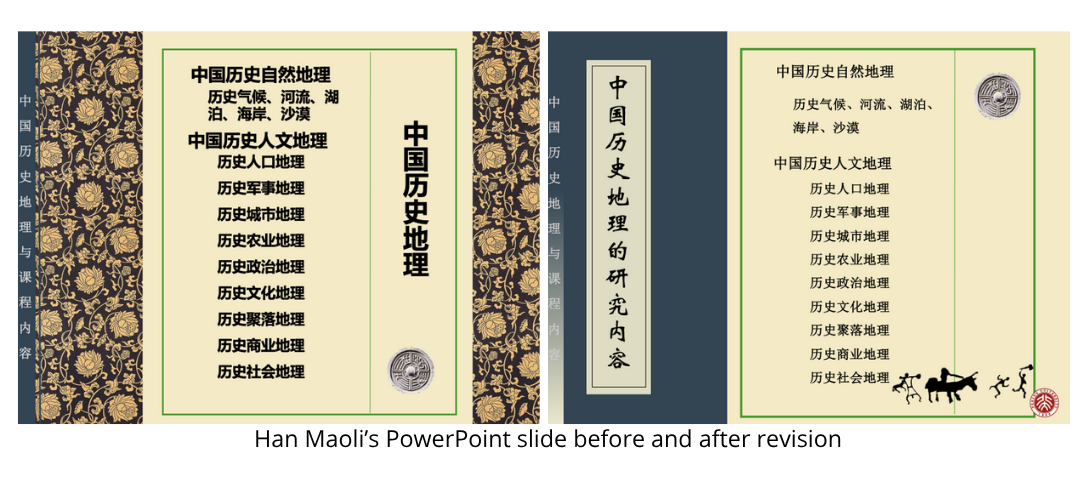 “Every class feels like a performance.”
“Every class feels like a performance.”
As one of the first students that took China’s national college entrance exam after it resumed, she held deep reverence for the classroom. When she became a teacher, she made herself a vow: Never let students down.
The challenge wasn’t deciding what to teach—but how to teach it. During her half-year of preparation, she was consumed by one question: How can I make this easier to grasp?
Take her lecture on ancient transportation for example. Instead of listing routes like Ziwu Road or Chencang Path, she wove them into vivid historical narratives: Liu Bang entering Xianyang, Han Xin’s conquest of the Three Qins, Zhuge Liang’s northern expeditions, etc. Roads came alive through strategy; geography unfolded through storytelling.
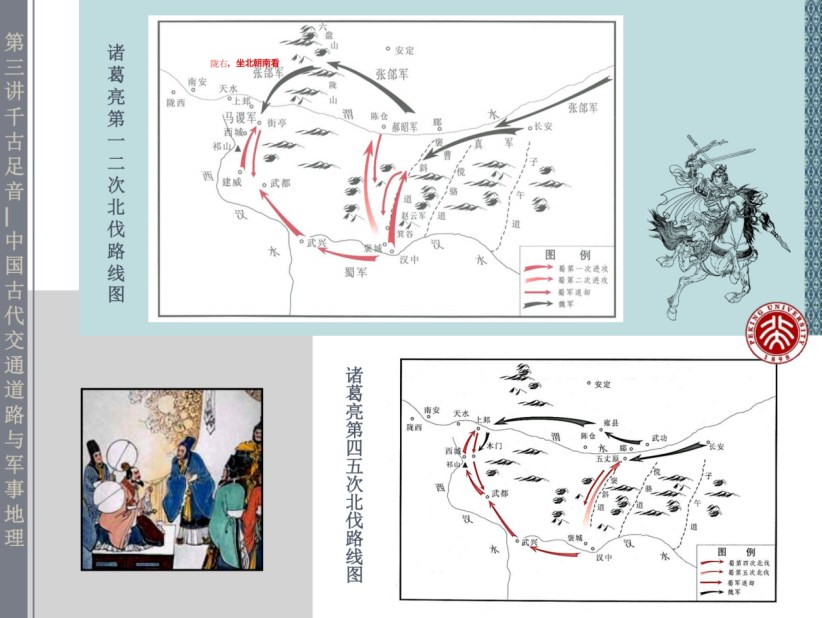
Han Maoli bases her class on the classic Romance of the Three Kingdoms
She admits, “If I give a bad lecture, I’ll feel unsettled the entire week.” Therefore, even now, long after retirement, Han spends ten hours a day in her office. “The building closes at ten, so I leave at ten,” she says. “I can’t tolerate repeating myself or losing my train of thought.”
“Every Chinese Historical Geography class felt like a performance,” recalls Tang Zhili, a student from the School of International Studies. “When Professor Han said, ‘Thank you for coming,’ the entire hall would erupt in applause. I had never even heard of the subject before, but by the end of the semester, I was left with not only vivid knowledge but also her warm voice in my memory.”
Learning and teaching

After class, the Professor always stays afterward to chat with students. These moments, often filled with curiosity and insight, are where the true magic of teaching happens.
Once, a student asked: “If a hundred thousand nomads traveled the same path in the Liao dynasty, wouldn’t the grass be gone in a day? What happens then?” It was a question Han had never considered. “That,” she thought, “is the meaning of teaching. It always sparks new thoughts, always leads to new insights.”
Wang Xinyao, a student from the School of Public Health, remembers how Han’s insights transformed her understanding of history. “After speaking with Professor Han, I came to understand the strategic wisdom behind Qing dynasty's governance. That’s when I truly saw the value of learning history—how geography, as a relatively constant framework, allows us to apply historical insights to today’s world.”
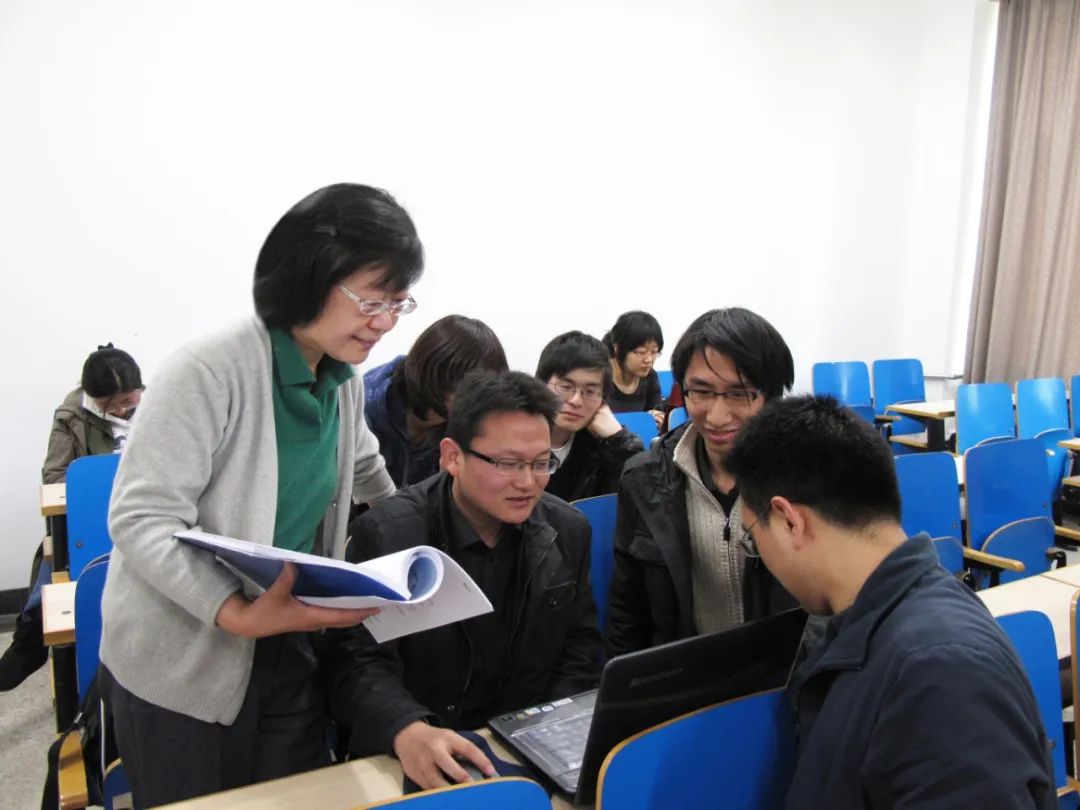
Han Maoli often talks to students after class to capture more inspirations
In early summer, the breeze dances through Room 207, sweeping away chalk dust but leaving behind the warmth of shared wisdom.
For 29 years, Professor Han Maoli has turned a niche subject into a Peking University classic, inspiring over 10,000 students. For her, teaching is not just a profession; it’s a calling. “As long as my mind remains sharp,” she says, “I will keep stepping onto that stage.”
Written by: Liu Yishu
Edited by: Wang Mengjiao, Chen Shizhuo
Source: PKU WeChat (
Chinese)
Photo by: Huang Zhe, Zhai Mengkun
Photo illustration by: Chen Shizhuo







